Taner Topal
On-device Federated Learning with Flower
Apr 07, 2021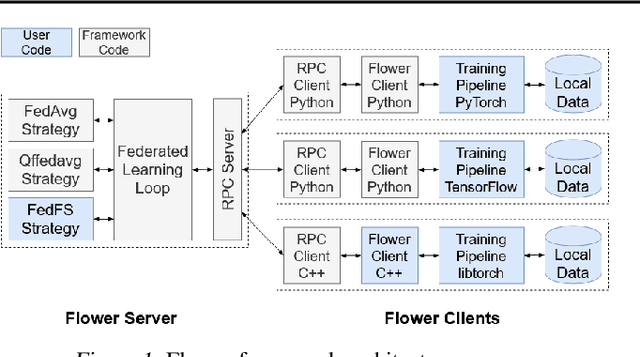
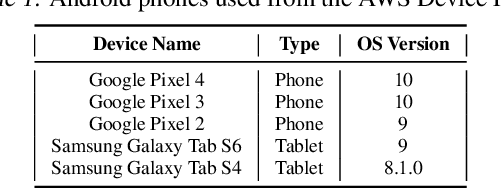
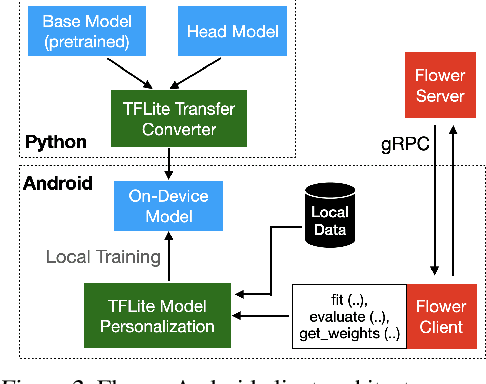
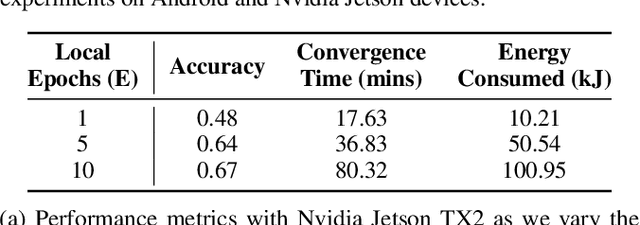
Abstract:Federated Learning (FL) allows edge devices to collaboratively learn a shared prediction model while keeping their training data on the device, thereby decoupling the ability to do machine learning from the need to store data in the cloud. Despite the algorithmic advancements in FL, the support for on-device training of FL algorithms on edge devices remains poor. In this paper, we present an exploration of on-device FL on various smartphones and embedded devices using the Flower framework. We also evaluate the system costs of on-device FL and discuss how this quantification could be used to design more efficient FL algorithms.
* Accepted at the 2nd On-device Intelligence Workshop @ MLSys 2021. arXiv admin note: substantial text overlap with arXiv:2007.14390
A first look into the carbon footprint of federated learning
Feb 15, 2021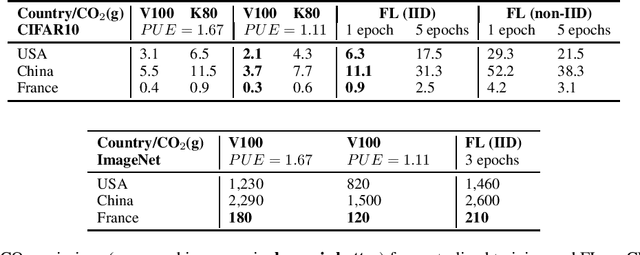
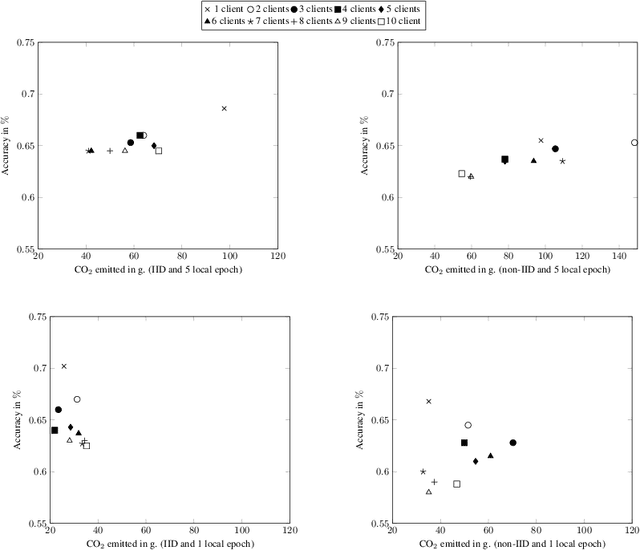
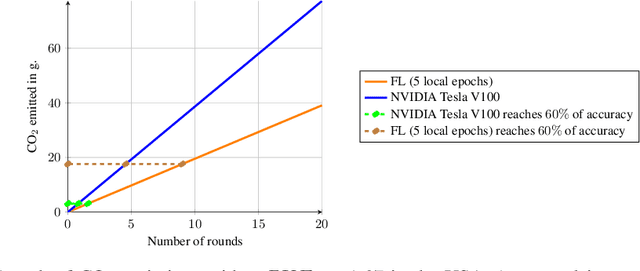
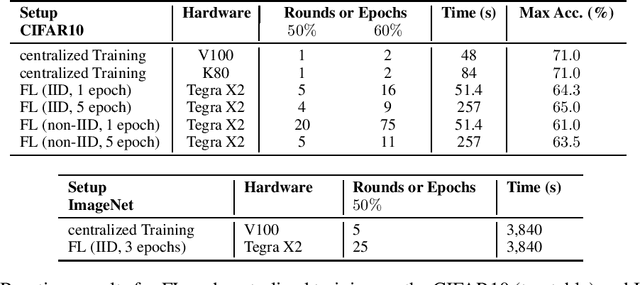
Abstract:Despite impressive results, deep learning-based technologies also raise severe privacy and environmental concerns induced by the training procedure often conducted in datacenters. In response, alternatives to centralized training such as Federated Learning (FL) have emerged. Perhaps unexpectedly, FL, in particular, is starting to be deployed at a global scale by companies that must adhere to new legal demands and policies originating from governments and civil society for privacy protection. However, the potential environmental impact related to FL remains unclear and unexplored. This paper offers the first-ever systematic study of the carbon footprint of FL. First, we propose a rigorous model to quantify the carbon footprint, hence facilitating the investigation of the relationship between FL design and carbon emissions. Then, we compare the carbon footprint of FL to traditional centralized learning. Our findings show that FL, despite being slower to converge in some cases, may result in a comparatively greener impact than a centralized equivalent setup. We performed extensive experiments across different types of datasets, settings, and various deep learning models with FL. Finally, we highlight and connect the reported results to the future challenges and trends in FL to reduce its environmental impact, including algorithms efficiency, hardware capabilities, and stronger industry transparency.
Flower: A Friendly Federated Learning Research Framework
Jul 28, 2020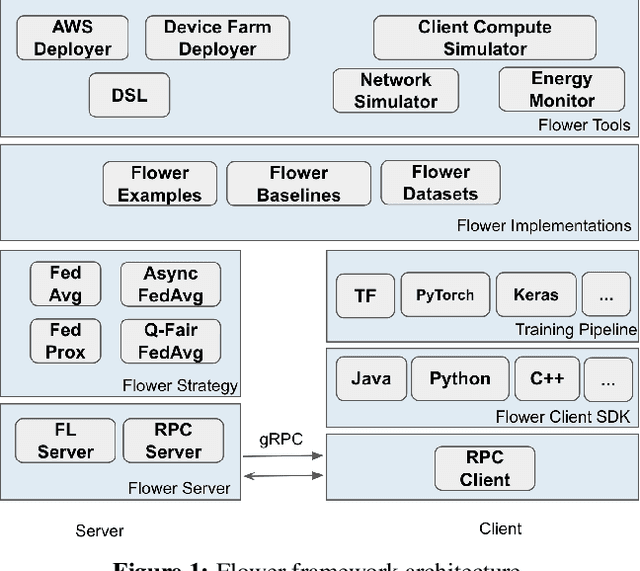
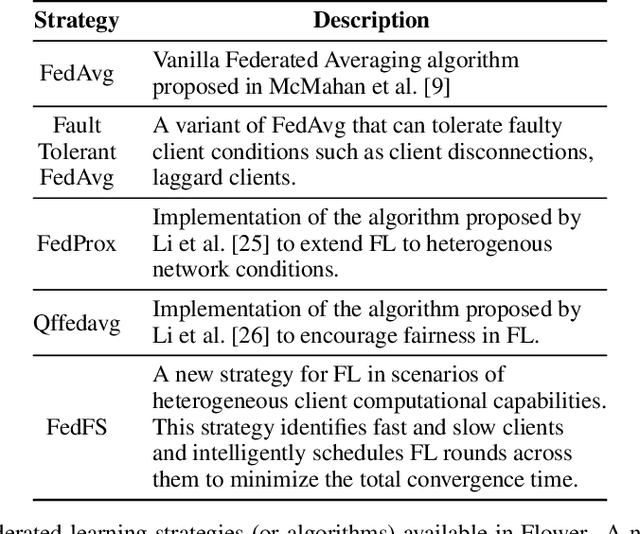
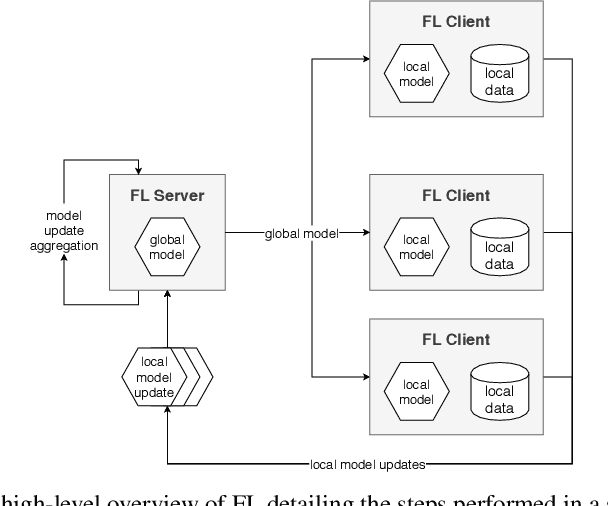
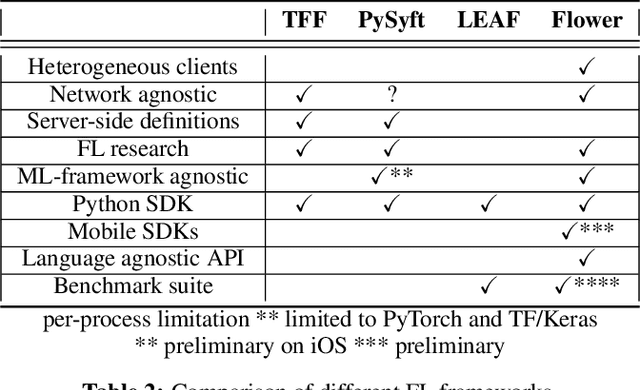
Abstract:Federated Learning (FL) has emerged as a promising technique for edge devices to collaboratively learn a shared prediction model, while keeping their training data on the device, thereby decoupling the ability to do machine learning from the need to store the data in the cloud. However, FL is difficult to implement and deploy in practice, considering the heterogeneity in mobile devices, e.g., different programming languages, frameworks, and hardware accelerators. Although there are a few frameworks available to simulate FL algorithms (e.g., TensorFlow Federated), they do not support implementing FL workloads on mobile devices. Furthermore, these frameworks are designed to simulate FL in a server environment and hence do not allow experimentation in distributed mobile settings for a large number of clients. In this paper, we present Flower (https://flower.dev/), a FL framework which is both agnostic towards heterogeneous client environments and also scales to a large number of clients, including mobile and embedded devices. Flower's abstractions let developers port existing mobile workloads with little overhead, regardless of the programming language or ML framework used, while also allowing researchers flexibility to experiment with novel approaches to advance the state-of-the-art. We describe the design goals and implementation considerations of Flower and show our experiences in evaluating the performance of FL across clients with heterogeneous computational and communication capabilities.
 Add to Chrome
Add to Chrome Add to Firefox
Add to Firefox Add to Edge
Add to Edge